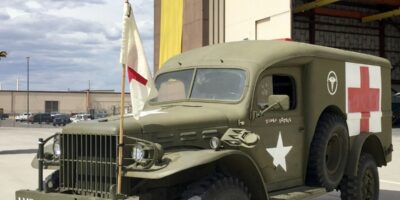Military Training for Veterans
Military training is a powerful foundation for transitioning back into civilian life. It provides skills that translate into numerous fields. Understanding these skills and how they apply in various sectors benefits veterans greatly.
Discipline and Time Management

One of the cornerstones of military training is discipline. Veterans are conditioned to follow routines and manage time efficiently. This trait is invaluable in any workplace setting. From meeting deadlines to organizing tasks, veterans often exceed expectations due to their structured training background.
Leadership Abilities
Military training instills robust leadership qualities. Veterans learn how to lead teams, make quick decisions under pressure, and delegate tasks effectively. These skills are particularly beneficial in management and supervisory roles in civilian jobs.
Technical Proficiency
Various military roles require specialized technical training. This includes handling advanced machinery, understanding complex systems, and maintaining equipment. Veterans often possess tech-savvy skills that are sought after in industries like engineering, IT, and mechanics.
Adaptability
Veterans are trained to adapt to rapidly changing environments. Whether it’s a new mission or an unexpected situation, flexibility is key. These adaptability skills are advantageous in dynamic industries such as tech startups or emergency response organizations.
Problem-Solving Skills
Military exercises often involve complex problem-solving scenarios. Veterans learn to assess situations, devise strategies, and implement solutions, often under stressful conditions. This rigorous problem-solving training is a significant asset in project management, consultancy, and operational roles.
Physical Fitness and Health Awareness
Physical training is an integral part of the military. Veterans maintain a level of fitness that employers find beneficial, particularly in physically demanding roles. Additionally, the emphasis on health and wellness in military training promotes a culture of well-being in the workplace.
Teamwork and Communication
The military emphasizes the importance of teamwork. Veterans are adept at working within a team, understanding roles, and communicating effectively. These skills are transferable to civilian team projects, collaborative environments, and customer service roles.
Security and Safety Training
Military personnel receive extensive training in security and safety protocols. This makes veterans excellent candidates for roles in security services, law enforcement, and emergency management. Their knowledge of safety procedures ensures a secure workplace environment.
Attention to Detail
Precision is vital in the military. Veterans are trained to notice details that others might overlook. This can be critical in industries such as quality assurance, auditing, and research, where small details can have significant impacts.
Resilience and Stress Management
Military careers often involve high-stress situations. Veterans are taught coping strategies and stress management techniques that help maintain performance levels under pressure. These resilience skills are beneficial in fast-paced, high-stress civilian job roles.
Project Management
Many military operations are essentially large-scale projects. Veterans gain experience in planning, executing, and managing projects. These skills are directly applicable to civilian roles that involve project coordination and management.
Networking Skills
Military personnel develop vast networks through their service. Veterans often possess strong networking abilities that help in finding job opportunities, connecting with mentors, and advancing their civilian careers.
Specialized Training Programs
Many organizations offer specialized training programs tailored for veterans. These programs are designed to bridge the gap between military training and civilian employment. They often focus on enhancing existing skills and providing additional certifications.
Entrepreneurial Skills
Military training fosters a spirit of initiative and independence. These traits are beneficial for veterans who choose to start their own businesses. Many veterans have successfully transitioned into entrepreneurship, using their military-acquired skills to drive their ventures.
Deployment of Management Tools
Veterans are familiar with various management and logistical tools used in the military. These tools include resource planning, inventory management, and operational logistics. Such expertise is highly valued in sectors like manufacturing, supply chain, and logistics.
Enhancing Civilian Education with Military Experience
Veterans often combine their military training with further education. Academic institutions value military experience and often provide credits for it. This integration enhances the veterans’ educational qualifications, making them more competitive in the job market.
Financial Management Skills
Managing finances under stringent conditions is part of military training. Veterans often have excellent skills in budgeting, resource allocation, and financial planning. These skills are particularly useful in roles such as financial analysis, accounting, and non-profit management.
Mental Health Initiatives
There is increasing recognition of mental health support for veterans. Many veterans’ organizations provide resources to help with the transition to civilian life, ensuring that veterans have the necessary support for any mental health challenges they might face.
- Understanding veteran benefits
- Accessing mental health resources
- Networking with other veterans
Cultural Competence and Global Perspectives
Military personnel often have experience in diverse cultural environments. This global interaction enhances cultural competence, making veterans adept at working in multinational companies or roles requiring cultural sensitivity.
Conclusion
The skills acquired through military training are vast and varied. Veterans bring a wealth of expertise, adaptability, and resilience to the civilian workforce, making them invaluable assets in numerous industries.
“`



